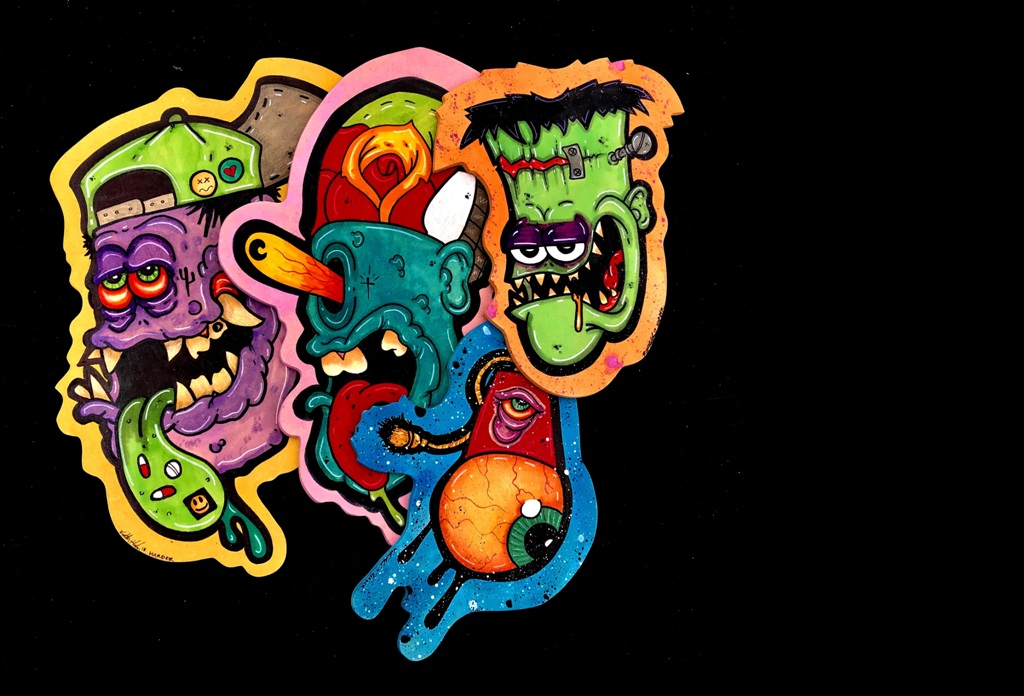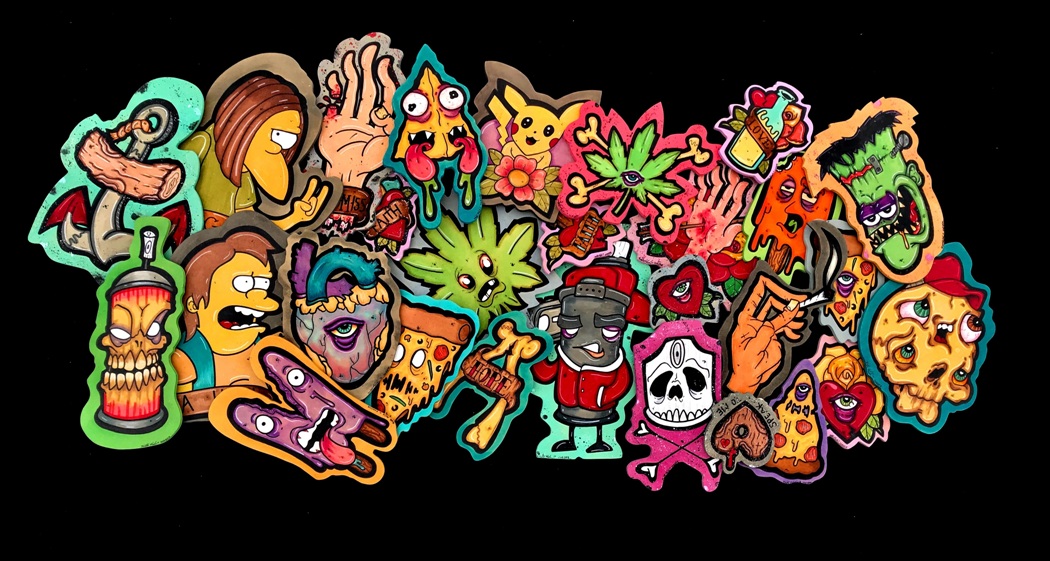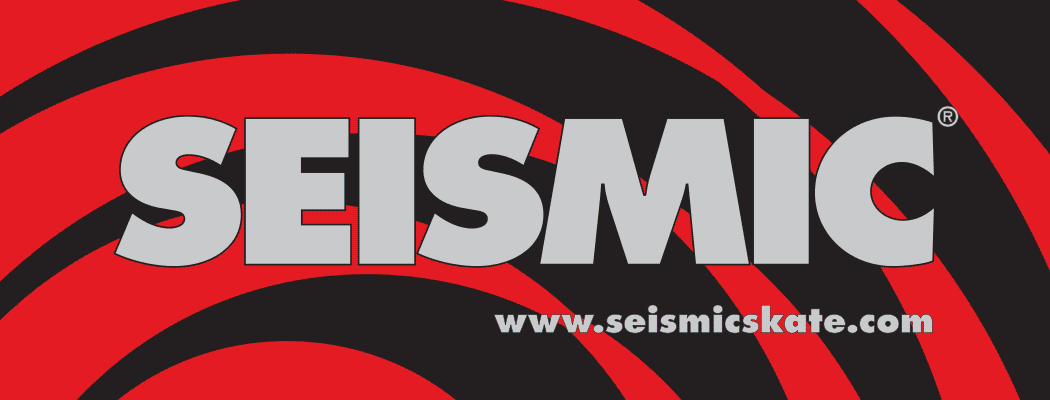


I’m going to start this off the only way I know how: brutally and honestly. I‘m biased as hell. I’m also probably horrendously out of touch. As a middle-aged, graying fatass, I’m definitely not the go-to expert on social media trends. That’s okay, though, because I can always minimize my aged inexperience by relying on some tried-and-true, time-tested habits. Namely, by “doing the research”, and taking careful note of what the real experts of the world are saying.
I’m the ultimate by-product of the mass-media paradigm. That’s probably where the bulk of my personal bias originates. When I started skateboarding (way back in the ‘80s), there was no such thing as “social media”. Believe it or not, there wasn’t even an internet. Our “social media” was hanging out after class with our friends, bullshitting. Passing notes in class. Or, meeting at the skateshop, the skatepark, the local ramp, or the curb up the street. My generation’s “social media” was strictly analog. We didn’t have a choice. That’s just the way it was.

Art by this month’s Featured Artist, Keith Harder.
Likewise, the mass media itself was similarly analog, and pretty strictly defined in scope and context. “Media”, as it existed in 1989, was either TransWorld SKATEboarding, or Thrasher. Two paper magazines: that was almost the entirety of the skateboard media at the time. Videos were still pretty new; those had only come out in ’86, and they were still a really exciting novelty. There were only a few videos released every year, so they were still a really big deal. And then, we had the fringe elements of the independent media: ‘zines. The fuck-all, do-it-yourself, cut-and-paste, small-format, black-and-white, photocopied versions of TransWorld and Thrasher.
That was it. That was the entirety of the media landscape in 1989.
“Facebook was in the news again recently following reports that it has been seeing a ‘context collapse’ on social media – a trend whereby users are becoming less likely to post or share things related to their personal lives (e.g. photos, status updates etc).”
– From blog.globalwebindex.net
Fast forward to 2018, and we now have a dizzying array of media, quite literally, at our fingertips. There are more “skate videos” released in a single fleeting second these days, than there were in all of calendar year 1989. There are hundreds of dedicated websites, thousands of blogs, and billions of social media tidbits out there, all ready and breathlessly waiting to be consumed by the skateboarding public.
At the same time, the “traditional skateboard mass media”… again, those stoic old magazines… are either already dead and gone, or slowly dying on the vine. Piles of glossy paper in search of readers that care enough to spend the time, energy, and money to track a paper magazine down, buy it, and patiently browse through it are stacking up in warehouses, stubbornly defying (or denying) irrelevance every single step of the way to nowhere at all. The readers are in numerical decline; caring, time, energy, and money are super-valuable assets these days, and the daily demands for those assets have never been bigger. “Buying a magazine” is the probably very last thing on the laundry list of any kid’s power-purchasing program.
“If you haven’t posted anything personal on Facebook (FB, +0.57%) in awhile, you’re not alone. A damning report published by The Information on Thursday revealed that Facebook has been struggling to reverse a 21% decline in “original sharing,” or personal updates, from its 1.6 billion monthly active users.
This indicates a key vulnerability for the social behemoth, and failed attempts to address it reflect a point I made in a recent column: There’s no guarantee that Facebook’s current winning streak can last.”
– From www.forbes.com
As a result of these trends, the skateboard industry of today has become very narrowly social-media minded. Not that the industry is particularly adept at engaging social media particularly effectively… but at the very least, they are keenly aware of it. And they are putting a lot of time and energy resources into engaging it.
So much so, that it is actually expediting the demise of mass media to the point where “mass media”, as we have traditionally defined it, no longer effectively exists.

Everything Skateboarding, of course, is an experiment in the validity, and the potential, of modern mass media. Launched at [arguably] the very worst time to engage with such an ambitious paradigm, I have been, at the very kindest, keenly questioned about the wisdom of my intentions; at the very meanest, I’ve been called a goddamned idiot. It certainly seems like a pretty risky (read: stupid) strategy to most people who know far more about it than my feeble mind ever will. So, why would I do it? Why here? And, why now?
Here’s why: social media is not the end-all and be-all of “the perfect media paradigm”. Sure, it has its strengths. And just like anything else in the world, it also has its inherent weaknesses. Yes, it allows anyone and everyone to participate in “being the media”. It is hugely democratic in nature, and it does level the playing field effectively, and significantly. It does engage the consumer in a much more interpersonal, interactive manner. And to be fair, it really is pretty exciting and empowering. The strengths and the possibilities are absolutely undeniable. So of course, I can see why the industry would invest so many resources, so heavily, into cultivating their social media presences. It would be severely stupid not to.
“ In April last year, a report published by The Information highlighted a rising problem at Facebook – people weren’t sharing as many personal updates as they used to.
Data obtained by The Information suggested the sharing of personal posts – people’s own thoughts and photos – declined by 21% between mid-2014 and mid-2015, which inspired Facebook to put together a team to tackle what they’d labeled “context collapse”, with Chief Executive Mark Zuckerberg calling on staff to come up with new ways to inspire more personal sharing.”
– From www.socialmediatoday.com
However, there are certain weaknesses that the industry has been slow to recognize, let alone adapt to. Social media has a very limited footprint, almost by definition. As a user, I really only hear what my small circle of friends happen to be talking about. This assumes, however, that my friends do a lot of posting, liking, and sharing. It also assumes that jerks like me even have friends, but that’s an altogether different matter. And it also assumes that Facebook’s confounding (and ever-changing) algorithms are going to react and pro-act the way we’d like them to.
Regardless, what happens when those lofty assumptions fail to fully materialize? What happens when the harsh realities of human nature defy the delirious daydreams of techies everywhere…? What happens if my circle of friends gets culled down (either by choice, by circumstance, or by Facebook’s own algorithms), or if my friends begin to get a lot less sociable? What happens when “social media” becomes… egads! Antisocial…?!

The quotes that I’ve culled off the internet have been included here in order to illustrate something very, very important. Liking, sharing, virtual befriending… these things do not happen nearly as much as the founders, the mass-marketing talking heads, or the professional promotional spokespeople at Facebook, Instagram, and Twitter would love for you to believe.
Quite the opposite is actually true: these things are all in decline, and have been in a slow and steady decline for a few years now. Most impartial social-media industry observers know this as an understated truism, and have been adjusting their media strategies accordingly; the quotes that I’ve included come from articles that were written as far back as 2015.
That means that many of today’s brands are investing more heavily than ever in a paradigm that offers, at the very best, diminishing returns. At the worst? They are investing in a set of assumptions that have proven themselves, over time, to be patently false.

Art by this month’s Featured Artist, Keith Harder.
If and when you think about it for a few minutes, it does start to make some reasonable and rational sense. It was bound to happen; the handwriting was on the wall the whole time. How interesting are your friends, really? How fascinating are the tiny, insignificant nuances of their fairly mundane, everyday lives? Do you really give that much of a toss whether they had pizza, pasta, or pork chops for dinner? Do you really value their opinions that much, when it comes to your consumption habits?
And, maybe most importantly: have you ever learned anything on social media that has any intrinsic value whatsoever? Or that ahs had any real, lasting meaning in your life?
If you’re anything like me, then you’re probably thinking that the resultant answers are, in order: Not very, not really, not at all, fuck no, and you know what? You’re right. I haven’t, come to think of it.
And even worse: I would fully expect my friends would say much the same sort of stuff, about me. After all, I’m not exactly “The World’s Most Interesting Asshole” over here, and my mundane day-to-day existence isn’t really any more fascinating than anybody else’s. Which leads me to ask the professional marketers of the world this question: why in the hell are you bothering to market to my friends, in some sad hope of influencing my behavior? And why in the Good Grace of God are you marketing to me, in some misguided attempt at influencing theirs…?

The last thing in the world that I want from my media, is to be told over and over again all the lame and boring shit that I already know, and know all too well. Social media is not, has never been, and will never be “media” at all. It’s a highly efficient and expeditious networking platform… and as such, it does a hell of a grand job. But, media? Media, my friends, it is not.
“Currently, 88% of millennials get news from Facebook, and because of the way Facebook’s newsfeed algorithm works, users tend to receive more news stories like the ones they’ve engaged with in the past. This has produced an “echo chamber” effect, where users end up surrounding themselves in news and ideas they already agree with. As there are currently no plans for Facebook or any other major platform to take action in reducing the power of those echo chambers, users will venture deeper into those polarized, abstract social bubbles. This will, in turn, polarize millennial participation in social media; some will become more vocal in posting online, while others may bail on social media entirely to escape these echo chambers.”
– From www.forbes.com
Media… real, effective media… exists to tell you all about the stuff that you don’t know about already. Media exists to tell your friends about stuff that they don’t know about, either. Media is an information, enlightenment, entertainment, and inspiration exchange, not a social network. Media and Social Networks… note that I have stopped using the hopelessly inaccurate term, “Social Media”, in the balance of this piece… work well when they aid and abet each other. They work well when their respective strengths and weaknesses complement and counterbalance each other. They do not work so well, however, when one completely displaces (and functionally replaces) the other.

Then, we have the “quality of content” question to consider. That’s an important consideration that social-networking talking heads just love to avoid, because as far as “content” goes, social network sites suck ass, and we all know it. There are no nuanced, long-form think pieces or compelling stories on social networking sites. There are very few quality photos. There is no art direction whatsoever; creativity is severely squandered by the formulaic presentation of social networking interfaces. There is no editing, no critique, no noble challenge… and most telling of all, no demand (or expectation) to curate and/or cultivate media excellence… anywhere in the social networking process.

Where else on the internet will you see large-format, animated ads aimed directly at your target market…? The best part about mass media, is that you’re not paying hard dollars to market to your market’s (non-skating) friends, family, and acquaintances. Everything Skateboarding goes one step further, and limits advertisers to core, skater-owned brands; Corporate America isn’t invited to pay or play. That magnifies your advertising effectiveness tremendously by limiting the scope and nature of your advertising competition, and putting your ad in with a core group of elite, extremely relevant, advertisers.
To an extent, that is natural and predictable: social networking platforms were never intended to produce, let alone showcase, this sort of high-end media product. They are literally engineered to put a face with a name, along with a few “gee whiz” tidbits of that name’s everyday adventures. But, they badly engage. They barely inform, outside of everyday bullshit. And they rarely inspire. Because that’s not what they exist to do. And it’s not what they were designed to do, either.

The biggest risk I see to the skateboard industry today, is this wholesale blind faith that the industry places in social networking, to the detriment of traditional mass media. And now, we have a whole generation of brands that don’t have the first, foggiest idea of where to even begin engaging with the [very limited] mass media that remains still standing. Most brand managers and owners have never had to create a compelling advertisement, give an interview, or deal with a persistent journalist hell bent on digging up dirt and talking smack. Most brand managers have never even been in a position where the media has challenged them. Yes: they’ve been challenged by their customers. That’s true. But customers are rank amateurs, when it comes to journalism and media production. Reporters and journalists, on the other hand, are fucking experts at instigating shit. That’s the difference. That’s the challenge that today’s crop of skate hardgoods brands just aren’t ready for.
But, they need to be. Because the mass media will see a resurgence. It’s only a matter of time. And that time is coming fast.

Everything Skateboarding is a small, but significant, template of what’s to come. As fun as social networking may be, there will be a day and a time when kids will want to step it up a few notches, stretch their creativity legs, challenge their writing and photography skills, work collaboratively with other passionate people, and create something of lasting consequence that they can be proud of. They’ll want to cause some trouble, wreck some shit, and have some real fucking fun with The Media. They’ll want to be idealistic industry players, perhaps even industry spokespeople, not just voiceless anonymous consumers… and starting a mass media portal is an excellent way to do expedite those immensely entertaining ends. Short of owning a skateboard “company” of your own, or owning a skate shop, working in the mass media is probably the third-best option to every kid’s dreams of skateboard-industry inclusion.
Having owned a company, and having managed a skate shop myself, I can tell you this from personal experience: the mass media dream has been horrendously undersold. Of the three, this is by far the most enjoyable, the most creatively challenging, and the most liberating job that I’ve ever had in skateboarding. And it’s only February, for fuck’s sakes. It’ll only get bigger and better from here. The fact that the internet gives you a global footprint in exchange for a ridiculously low capital barrier-of-entry, and remarkably insignificant expenses, tells me that the small, independent mass media site might well be the next small, independent skateboard company. And we all know how many small, independent skateboard companies there are these days.
That’s why we’re going to see a mass-media resurgence. The barriers of entry are so damn low that anybody can do it, and do it far better than even I can do it Watch out, Industry. I give it five years, tops, until the world is inundated by Everything Skateboarding wannabes.
The industry, of course, will be mortified by all of this. The retailers will be suspicious. The distributors will be indifferent, as they usually are. But the little kids with big dreams, as always, will be the final arbitrators of what goes, and what doesn’t, on this battlefront. If you’re pretty handy with a keyboard, a camera, a few lines of slick computer programming, some video editing software, and the telling of a funny story or an ass-kicking opinion- then the dream can be yours, and yours pretty quickly. Best of luck to everyone involved, because you’re all gonna need it.
If you need a helping hand navigating The New Mass Media headspace, drop me a line. I might be a ginormous jerk, but I’m a heck of a lot nicer than the next generation is gonna be. You can mark my words on that, and take the smart money straight to the bank. It’s time to get mass-media minded (again). See ya next month, now go skate…

Bud Stratford, Executive Director, Everything Skateboarding

